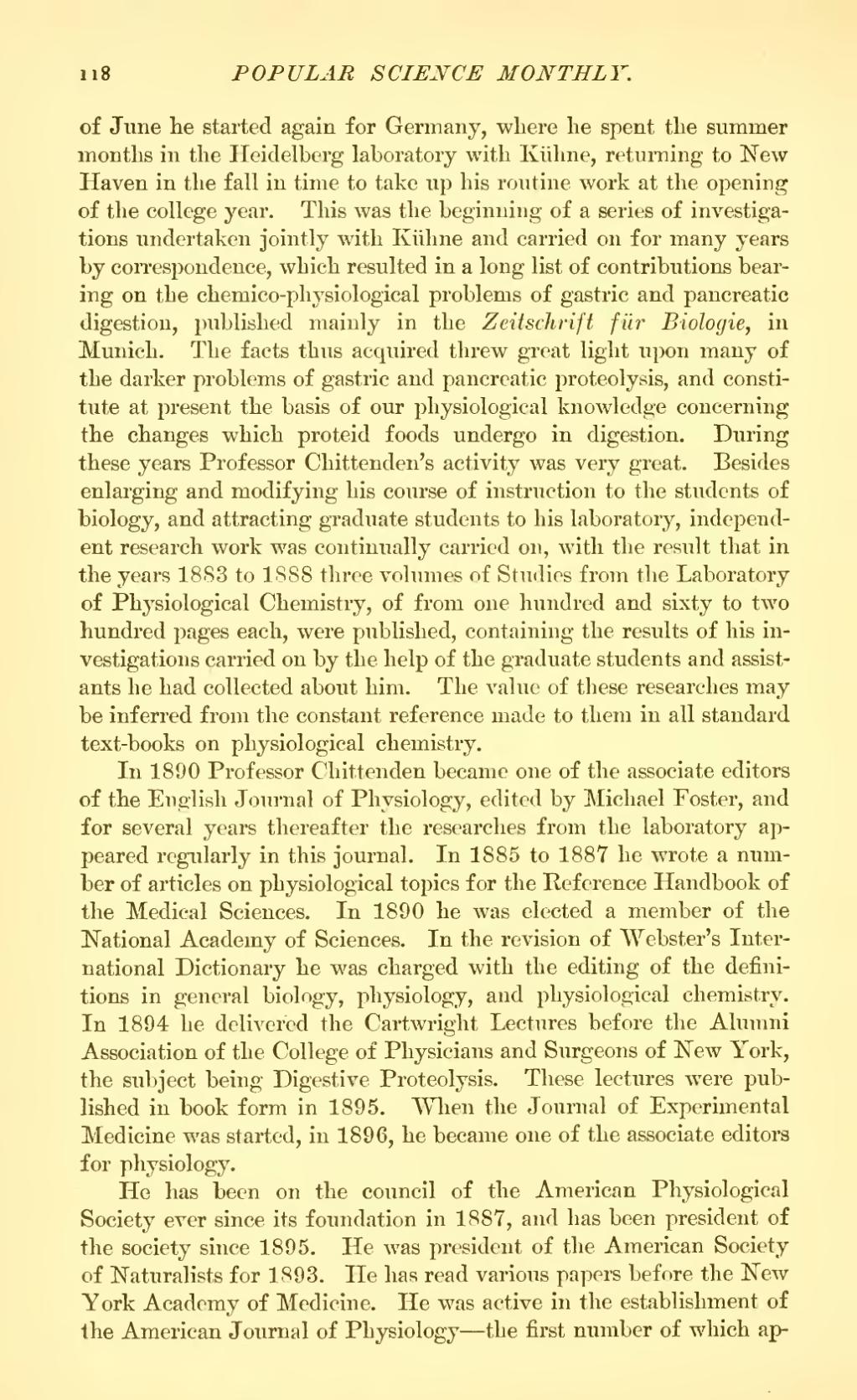of June he started again for Germany, where he spent the summer months in the Heidelberg laboratory with Kühne, returning to New Haven in the fall in time to take up his routine work at the opening of the college year. This was the beginning of a series of investigations undertaken jointly with Kühne and carried on for many years by correspondence, which resulted in a long list of contributions bearing on the chemico-physiological problems of gastric and pancreatic digestion, published mainly in the Zeitschrift für Biologie, in Munich. The facts thus acquired threw great light upon many of the darker problems of gastric and pancreatic proteolysis, and constitute at present the basis of our physiological knowledge concerning the changes which proteid foods undergo in digestion. During these years Professor Chittenden's activity was very great. Besides enlarging and modifying his course of instruction to the students of biology, and attracting graduate students to his laboratory, independent research work was continually carried on, with the result that in the years 1883 to 1888 three volumes of Studies from the Laboratory of Physiological Chemistry, of from one hundred and sixty to two hundred pages each, were published, containing the results of his investigations carried on by the help of the graduate students and assistants he had collected about him. The value of these researches may be inferred from the constant reference made to them in all standard text-books on physiological chemistry.
In 1890 Professor Chittenden became one of the associate editors of the English Journal of Physiology, edited by Michael Poster, and for several years thereafter the researches from the laboratory appeared regularly in this journal. In 1885 to 1887 he wrote a number of articles on physiological topics for the Reference Handbook of the Medical Sciences. In 1890 he was elected a member of the National Academy of Sciences. In the revision of Webster's International Dictionary he was charged with the editing of the definitions in general biology, physiology, and physiological chemistry. In 1894 he delivered the Cartwright Lectures before the Alumni Association of the College of Physicians and Surgeons of New York, the subject being Digestive Proteolysis. These lectures were published in book form in 1895. When the Journal of Experimental Medicine was started, in 1896, he became one of the associate editors for physiology.
He has been on the council of the American Physiological Society ever since its foundation in 1887, and has been president of the society since 1895. He was president of the American Society of Naturalists for 1893. He has read various papers before the New York Academy of Medicine. He was active in the establishment of the American Journal of Physiology—the first number of which ap-
